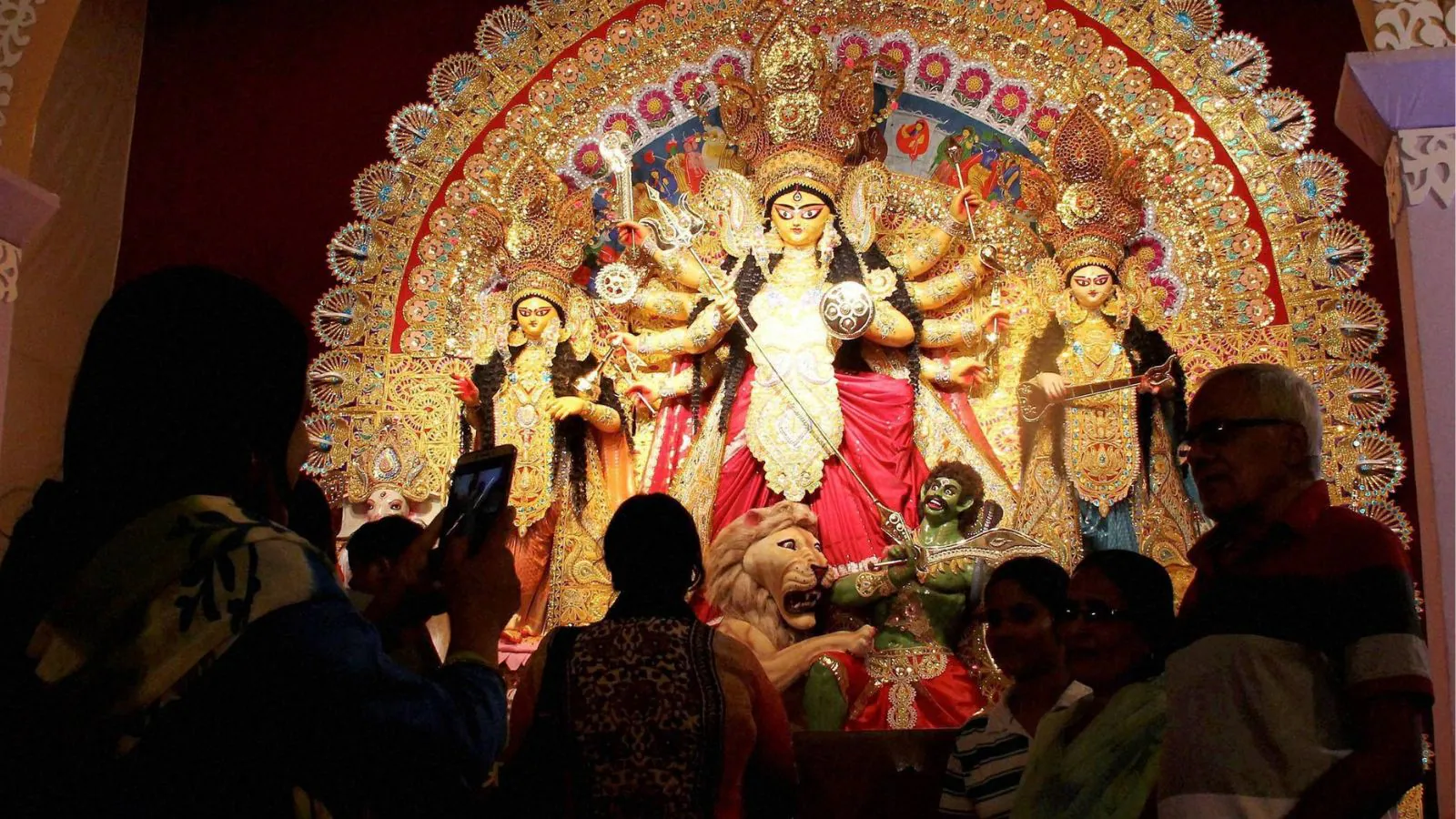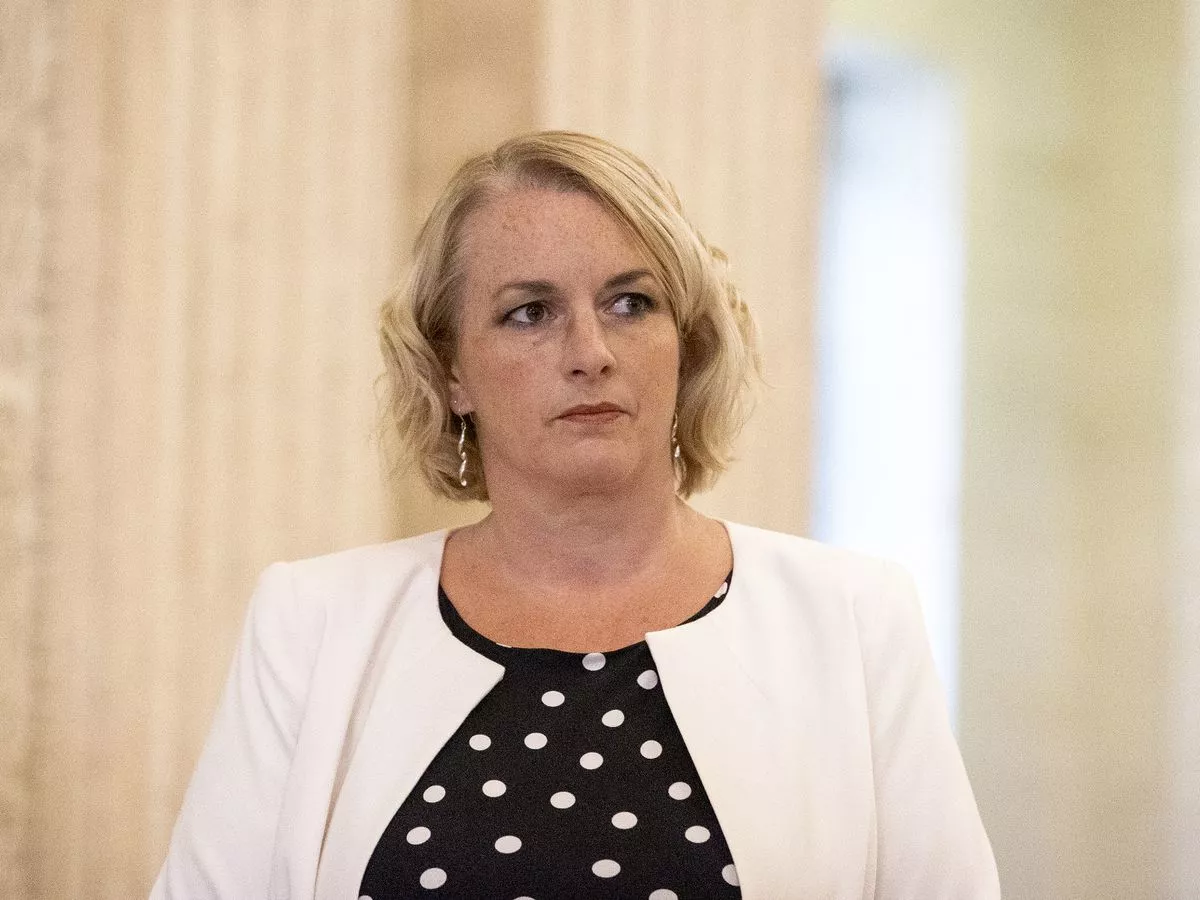By News18,Sandipan Deb
Copyright news18

On the night of September 22-23, Kolkata was hit by a deluge of mammoth scale. In just six hours, some parts of the city received over 330 mm of rain, with most areas averaging more than 250 mm. To put it in perspective, Delhi recorded a total of 903 mm of rain for the entire monsoon season this year. By daybreak, much of Kolkata was more than knee deep in water, its infrastructure teetering on the brink of collapse, hundreds of thousands of livelihoods deeply damaged or destroyed. At least 12 people were dead, 10 of them by electrocution from free-hanging wires.
It will, of course, take time to gauge the full economic cost of the downpour, but Nature’s fury could not have been unleashed at a more unfortunate moment. Devipaksha, the fortnight of waxing moon that marks the Durga Puja, the biggest annual celebration in Bengal, had begun on September 21, and Mahashashthi, the day when the goddess’ idol is revealed to all, is on the 28th.
Festivities had already begun. More than 3,000 puja pandals, hundreds of them built with blockbuster budgets ranging from Rs 50 lakh to over Rs 5 crore, were up and crowds had started gathering. Many of these structures now lie half-submerged and dark, with their power supplies disrupted or shut down for safety reasons. More rains are predicted on the 27th.
The Puja is crucial to West Bengal’s economy. It is estimated that in 2023, total business transactions were at least Rs 100,000 crore—more than 5 per cent of the state’s gross domestic product, generating between three and four lakh jobs. And the numbers grow every year at a rate faster than the state’s GDP.
According to data from the Union Ministry of Statistics and Programme Implementation, the state, once a dominant player in India’s economy, has seen a consistent decline in both its share of India’s GDP and its relative per capita income over the past six decades. In 1960-61, West Bengal contributed 10.5 per cent to the national GDP, ranking third among Indian states, but this share has shrunk significantly to 5.6 per cent in 2023-24, the sharpest drop among all states. Over the same period, per capita income has dropped from 127.5 per cent of the national average to 83.7 per cent. The state sorely needs Ma Durga’s blessings every year.
The Puja is also a key part of Mamata Banerjee’s strategy to stay in power. In 2019, the government spent Rs 61 crore on grants given to registered puja committees. This soared more than six-fold to Rs 385 crore in 2024 and is expected be around Rs 500 crore this year.
It began in 2018 with Rs 10,000 per committee. This year, it’s Rs 1.1 lakh, an 11-fold leap. It should come as no surprise to anyone then that the number of puja committees too has surged from around 24,000 to more than 45,000. The government’s budget has leaped 45-fold.
Didi runs dozens of schemes that cover more or less every stage of life, from child nutrition to education to skill development to unemployment benefits to wedding expenses to support for senior citizens and even funerals. While these schemes are meant for economically weaker families, critics have been complaining for years that the money ends up only in the bank accounts of Trinamool Congress supporters, income no bar. Be that as it may, election results indicate that Bengal’s voters love the handouts.
Durga Puja gives Didi the chance to dovetail her freebie strategy with another high-yield one—the aggressive promotion of the exceptionalism of Bengali culture.
For decades now, Bengalis have been using “cultural superiority” to block out the laggardliness of their state on a multitude of measurable parameters. Didi has mined this rich vein with great success. She also knows that the “bread and circus” gameplan works— if you provide the populace with enough food and entertainment, they will remain content and not challenge the ruling authority.
So, what you have is a staggering amount of thought, time, effort, creativity and focused ambition to create truly astonishing art installations that exist only for a fortnight. Puja pandal themes have ranged from architectural recreations of Buckingham Palace to pollution in the Ganga to India’s space missions and social justice issues. The grandeur and the craftsmanship are awe-inspiring.
The Phillistine in me, the expatriate Bengali, of course wonders: What if this much of intelligence and hard work had gone into something else… But let that be. The organisers and creators feel immense pride and vindication, and the masses, walking and standing in queues through the night, get the spectacle and entertainment they crave for.
And Didi doesn’t let the party end too soon. On a convenient date after Bijoya Dashami (Dussehra), she hosts the Carnival, a grand celebration on Red Road, Kolkata’s equivalent of the Champs Elysees of Paris. The major Durga Puja clubs carry the goddess for immersion on villa-sized floats with processions, music, dance, and themed events. Everyone goes home thoroughly joyous and absolutely exhausted and takes about three days to recover. It is catharsis on a mega scale. Life is good. Didi rocks.
Didi rocks because she stole the powerful state-wide cadre network that the Left Front, which ruled West Bengal for 34 years, built and relied on to keep ruling. The cadre members served at para (mohalla/ neighbourhood) and village levels as enablers, campaigners and enforcers, essentially running parallel governments that bypassed the official administrative and law and order systems, often dictating to them. Didi has strengthened and super-empowered the cadre at local levels beyond the Communists’ wildest dreams.
In large parts of the state, if you have a problem big or small, from a lost cat to getting material and labour to construct that house that you have been saving money for all your life, you go to the local Trinamool dada. He delivers, but of course these services don’t come free. You have to swear lifetime fealty to the party plus fees—“cut money”. After a disappointing performance in the 2019 Lok Sabha elections, Didi publicly asked her cohorts to go easy on “cut money” and even return some of it to the victims. The message probably was: “Everything must be done in moderation.”
The youth and sports department gives funds to “clubs”—a somewhat unique Bengali neighbourhood social institution—to promote sports and culture, and never mind that the only sports that the club is interested in is carrom, and its prime cultural event is watching IPL live in the clubhouse. A Kolkata-based music-loving friend paraphrased a Dire Straits song from the 1980s to describe the situation: “Money for nothin’ and your drinks for free.”
The puja grants are part of this benevolent project to help Bengali culture thrive. The “kaalchar” must thrive, come hell or high water.
As for the high water that Kolkata is trying to wade through desperately, Didi has made it clear who are responsible for this calamity. On the day after the deluge, she put the blame squarely on poor dredging of the waters coming to the Farakka barrage in Murshidabad district from the Gangetic belt. The barrage diverts waters from the Ganga into the Hooghly river to flush out sediment deposits and maintain the navigability of Kolkata Port.
“Why wasn’t Farakka (which is under central government control) dredged properly?” she told a Bengali news channel, while admitting that “this time the rain was a bit unusual”. “Please answer,” she demanded. “The water from Bihar and Uttar Pradesh is coming into our Ganga because of silt accumulation. If the Ganga’s water-holding capacity decreases, then where will we drain the water from Calcutta? Where will we send this water? It is full of Bihar and UP’s water.” She also blamed the private-sector Calcutta Electric Supply Corporation for the electrocution deaths and power outages, and the Metro Rail authorities (reporting to the Centre) for blocking drains with dumped sand and other construction material.
From Nature to governments in the Centre and other states, private and public sector corporations—the universe seems to be plotting against Didi. What a lonely battle she has to wage. But, of course, she will overcome and triumph. The pandals will be restored in all their glory in a day or two, and Bengalis will be celebrating harder than ever, to cock a snook at all those elements who think that they should spend their time and intellect on doing something whose effects last longer and make a difference to their world.
When the show is over, and the commoners return to their cheerless lives, Didi will give stirring speeches invoking the fearless spirit of Bengal. Tagore, Swami Vivekananda and Subhas Chandra Bose will be quoted—or rather, brazenly misquoted. The superiority of the Bengali race will once again be affirmed and confirmed. Life will be back to normal under the benign eye of Ma Durga, who has now returned to the Himalayas to spend the rest of the year with her adoring ash-smeared husband and her four wonderful children. Every nook and corner of Kolkata will resonate with the immutable promise: “Aashchhe bachhor abaar hobe”—next year, once more. Ya devi sarvabhutessu…
(The author is former managing editor of Outlook, former editor of The Financial Express, and founding editor of Outlook Money, Open, and Swarajya magazines. He has authored several books. He tweets @sandipanthedeb. The views expressed in this article are those of the author and do not represent the stand of this publication.)



